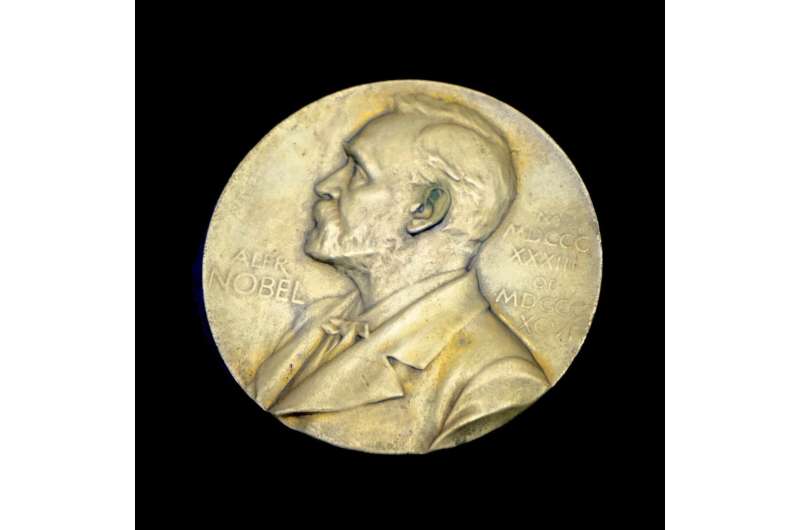October 6, 2021 report
Prize winning topics found to deliver more science papers and citations than non-prize-winning topics

A trio of researchers from Northwestern University and Southern University of Science and Technology, has found that topics related to more prize-winning in the science field tend to lead to more papers being written about them than non-winning topics. In their paper published in the journal Nature Communications, Ching Jin, Yifang Ma and Brian Uzzi, note that they also found that prize-winning topics tend to attract "star scientists."
The science field is rife with awards, with each being given to recognize exceptional work done by a group or individual—the most notable of course, are the Nobel prizes. In this new effort, the researchers wondered what impact, if any, winning awards has on certain science topics. Do more physicists flock to particle physics, for example, if teams such as those at the Large Hadron Collider receive prizes (and attention) for their work in finding proof of the Higgs Boson?
To find out, the trio looked at hundreds of scientific prizes and their impact on over 11,000 science topics. In so doing, they found a clear pattern—the topic of research by prize winners typically became more popular. They found that on average, prize-winning topics led to 40% more papers being written about them along with a 33% increase in citations, within ten years of them being awarded, compared to non-prize-winning topics. The researchers also found that when scientists working on a given topic won a prize, retention rates for other scientists working on the same topic rose by approximately 55%—and they also gained approximately 37% more new scientists than non-prize-winning topics.
The researchers also found that prize-winning topics tend to attract so-called "star scientists"—scientists who make up the top 5% of those who are highly cited by others in their field. Overall, they found a 47% increase in the number of star scientists working on the newly prized topics. They also found that funding increases in popular fields did not appear to account for the changes that they saw in the topics that had won prizes—and because of that suggest that increasing funding to attract more interest in certain topics likely would not work as hoped.
More information: Ching Jin et al, Scientific prizes and the extraordinary growth of scientific topics, Nature Communications (2021). DOI: 10.1038/s41467-021-25712-2
Journal information: Nature Communications
© 2021 Science X Network




















